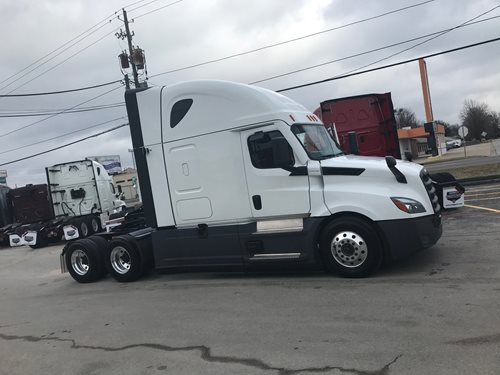
As you all know from my last installment “In the Dark” I'm in the middle of a project driving as a company driver in order to evaluate fuel mileage for a carrier. After being self-employed as an independent owner-operator since 1996, there are habits that don't seem to naturally fade away while operating as a company driver. In the last installment, I discussed that it's hard for me to know where all the parts and pieces that make up a week's travels work together when I don't know what's coming next in my day-to-day journey.
During the trips I have conducted for this carrier so far, they have always sent a driver to observe the techniques I employ to obtain the maximum efficiency for the trucks. Efficiency can mean many different things. For some, efficiency would be all about operational costs. For others, efficiency is calculated from the amount of time it takes to perform a task. When operating my own business with my own customers, I must think of efficiency from all directions. For example, it does not matter how fuel-efficient my truck is if the shipment arrives late causing a disruption for my customer. There is always a balance of many forces which all contribute to having a successful business when running your own company.
For a car carrier, most of their focus is on how to fit more cars per trip than their competitor. A bulk hauler or tanker reducing tare weight in order to haul more payload typically becomes a priority. Versatility along with a low tare weight often are key ingredients to profitability for an open deck operation. In dry van or refrigerated trailers, payload/cube capacity along with items like lift gates, double stacks, and a myriad of other options can lead to a competitive advantage in the marketplace.
It is important to me not to put blinders on and only focus on a narrow part of any given operation. For example, I have met many open deck operators who strictly focus on tare weight and deck capacity while ignoring aerodynamics and fuel efficiency completely. As a business owner who started in the open deck sector of the transportation industry, I found fuel efficiency to be one of the cornerstones of my success while operating as a flatbed carrier. I found there to be a fertile field in regards to fuel efficiency in the open deck sector because a large portion of my competition simply turned a blind eye to the adoption of fuel-saving strategies.
Wait a minute! I'm getting off subject! Because you can't take the businessman out of the business! I started burrowing down a rabbit hole as the business side of my mind began thinking of efficiency! I promise I'll get back to efficiency with a flatbed in a later blog. But for now, let's get this train of thought back to the mainline.
Operating as a company driver led me to conduct myself in a manner that seemed foreign to the ride-along driver who was with me on each truck. How do you get everyone on board with the thoughts of driving their company trucks efficiently even though it is not their own business? One of these company drivers was sleeping with the engine on because he was used to the vibration and sound of it no matter what the outside ambient temperature was like. I got strange looks because basically any time the truck's engine was not being used to propel us down the highway the key was switched to the off position.
The conflict in thoughts was blatantly clear. For me, as a business owner, my mindset was to keep the engine off every moment it was not needed. While the company driver's mindset was strictly in regards to their own comfort and not the profitability of their employer.
In another case where we were dispatched with an enormous amount of time before our delivery appointment, I slowed the truck to well below the speed limit and cruised along in the right-hand lane for the entire leg of the trip. During this time, there was seldom a need to apply the brakes and we still arrived at the customer 12 hours before they opened for business. In the morning, we were the first to be loaded and our next dispatch was for approximately 140 miles more than I could accomplish as a solo driver. Even if I had sped up to their governed speed, I was going to come up short on time. I informed my co-driver that they would need to complete this journey, along with the fact that I was going to cruise at 67 mph where safe, legal, and posted vs. the 70 mph governed speed of the truck. As it turns out with the particular specs of these trucks, 67 mph vs. 70 mph offered a noticeable increase in fuel efficiency. Slowing this little bit would boost the company's profits while changing our arrival time minimally.
For me, the interesting part of this exercise has been my inability to not think like a business person. I know there are companies who have successfully managed to engage their drivers in a manner that ended with them keeping the profitability of their employer at the forefront. One of my fellow Team Run Smart Pro's, Clark Reed, drives for a company that has been successful in its endeavor to have its drivers engaged to maximizing profitability for the company. This in turn has led to low driver turnover rates, profitable business, and a rewarding place to work for their drivers. I'll hand this subject of company driver mindset to Clark and have him expand on his thoughts and techniques as a company driver.